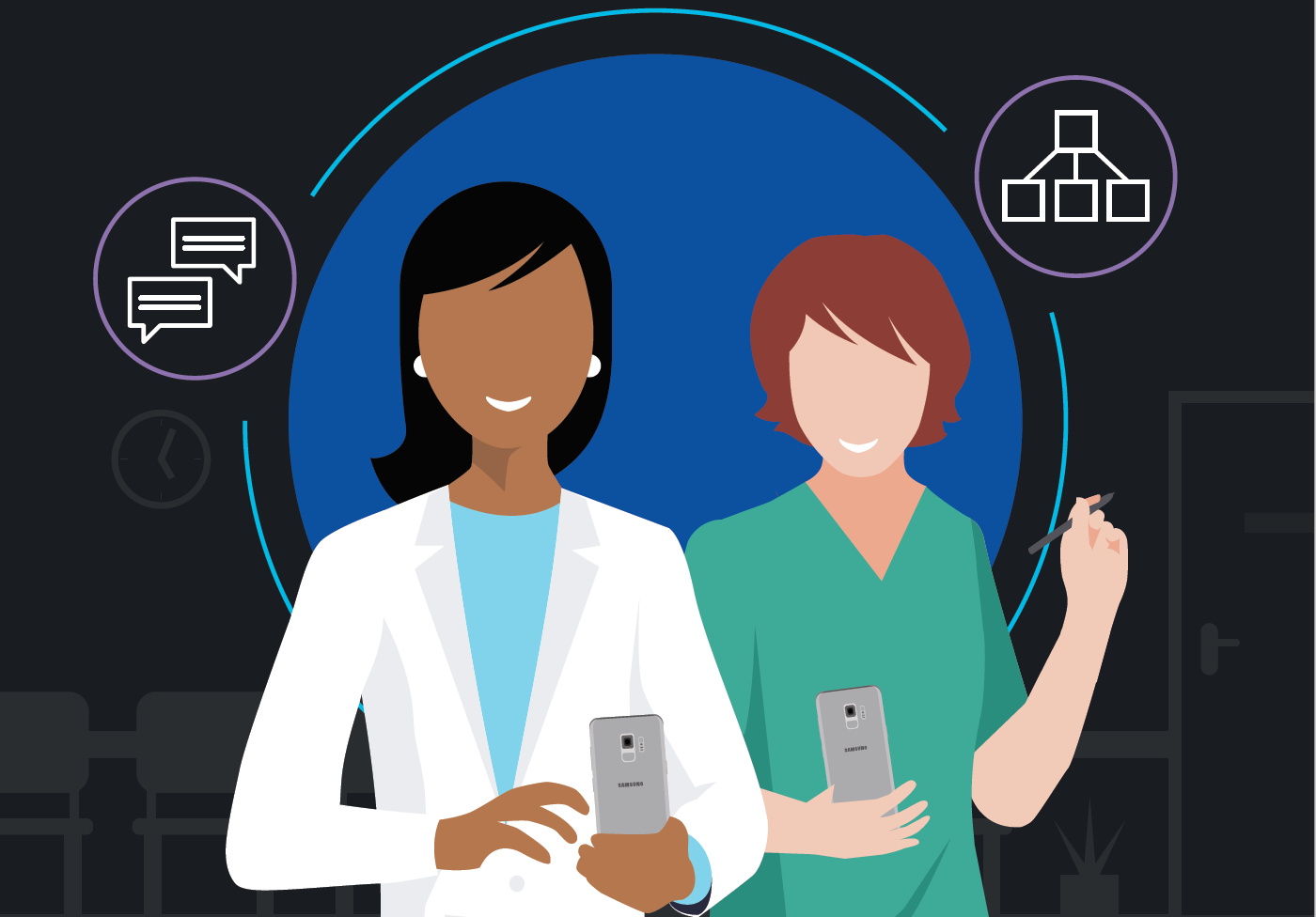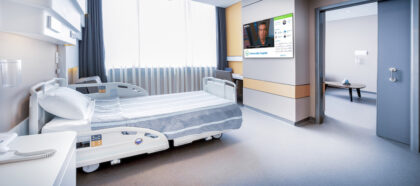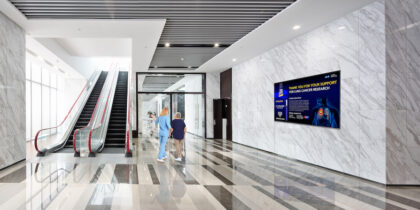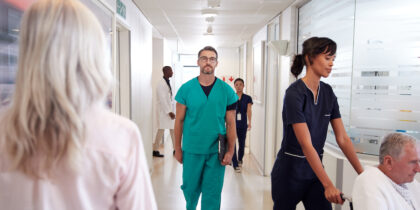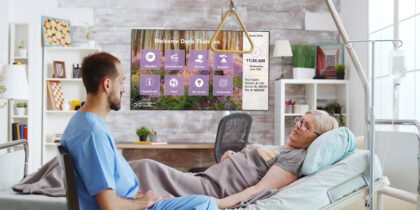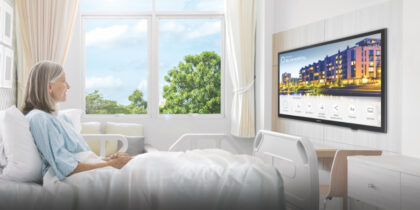It’s often said that the whole workforce has gone mobile. But how true is that within the medical profession?
Even after an accelerated shift to virtual care and telehealth due to the COVID-19 pandemic, physician technology is still far behind the curve. It’s a little alarming to consider this, given that quick access to information can be a matter of life or death.
Despite the push for “meaningful use” of electronic health records (EHRs), physicians at many hospitals and clinics still rely on printed files — or their memory — while they engage with patients. And when physicians need to access or update the patient’s EHR, they have to walk from the patient’s room to a nurses’ station to manually enter notes, write prescriptions or sign discharge papers.
This isn’t just inconvenient and time-consuming for the doctor — it also means the patient ultimately gets less time with their physician. So why is healthcare tech lagging?
Lack of platform standardization creates tech challenges
It’s not that hospitals haven’t tried to increase mobile access. It’s that the adaptation of mobile as a sole-source solution is still being conceptualized. This is largely because many hospitals have taken a Bring Your Own Device (BYOD) approach to mobile, which is notoriously challenging to secure and manage on an ongoing basis, especially in such a heavily regulated industry. Add to that healthcare organizations’ propensity for working with multiple software vendors — which may offer different functionality for different operating systems (and different update schedules) — and it becomes clearer why healthcare mobility is still a work in progress.
How to create a mobile-first hospital
Get your free guide to modernizing clinical communications with smartphones. Download Now
For healthcare mobility to truly hit its stride, hospitals need to institute smart, adaptable mobile solutions that address the entire physician workflow from end to end. With Samsung DeX, we think we have the answer.
Imagining the mobile-only future
Picture a doctor who makes their rounds with a hospital-issued Galaxy Note20 and an S Pen. Like other Samsung smartphones, the Note20 features the HIPAA-ready Samsung Knox security platform, built in from the chip up to protect against intrusion, malware and other malicious threats.
When the doctor enters a patient’s room, they greet the patient and use their phone to scan the patient’s wristband, bringing up their health records. The doctor then uses DeX to connect their phone (wirelessly or with an HDMI cable) to the room’s display, which doubles as a patient entertainment center.
The doctor and the patient review the findings, examining anatomy charts and X-rays. If the patient has questions, their doctor can access online medical resources to help further illustrate the procedure. The desktop computing experience enabling this consultation is powered entirely from the doctor’s phone. Using the Galaxy Note20, this process is faster and more secure than ever.
As the doctor performs the exam and asks the patient about current symptoms, they can take notes, record their assessment and issue prescriptions right from their phone using an S Pen, even while simultaneously showing the patient medical information on the monitor.
Increasing quality time spent with patients
Without a mobile solution, some of these tasks would require the doctor to head down the hall to the nurses’ station, taking them away from the patient and their family. Now, the doctor or nurse can remain in the room and access this data from a smartphone or tablet — without disrupting the patient experience. And if they need to maintain social distancing or isolation from the patient, the doctor can talk with them virtually from the nurses’ station.
When they’re finished with a patient, the doctor can quickly disconnect their smartphone and move right on to the next patient’s room. Despite spending extra time with the previous patient, they’re still ahead of schedule compared to the manual approach, and may be able to see a couple of extra patients during their shift.
After completing rounds, the doctor can continue to use their smartphone for administrative tasks, connecting it to a monitor, keyboard and mouse at the nurses’ station to answer emails, complete discharge papers and consult with colleagues.
Making smarter physician workflows a reality
This scenario isn’t as futuristic as it sounds. It’s all possible today with just a Galaxy smartphone and the DeX platform. This combination can turn any place into a workspace for physicians. Unlike other mobile strategies, this doesn’t treat mobile as an “add-on” that lets you do some tasks but not others. It’s not about adding more endpoints that IT will have to manage. It’s about harnessing today’s smartphones to power the entire clinical workflow and dramatically simplify hospital IT.
For hospitals to achieve full mobility, they’ll need to move beyond BYOD and commit to using mobile devices and apps. They’ll need to look carefully at their existing IT infrastructure, reach a consensus on their mobile goals and plan a phased rollout.
The mobile revolution may be well underway, but healthcare’s transformation still has a long way to go. With the Note20 and Samsung DeX, your organization can lead the charge.
Going fully mobile doesn’t mean you have to lose the benefits of working at a desktop. Learn more about transitioning to a mobile future with DeX in our free guide. And for other innovative solutions, explore Samsung’s versatile range of mobile healthcare technology.

